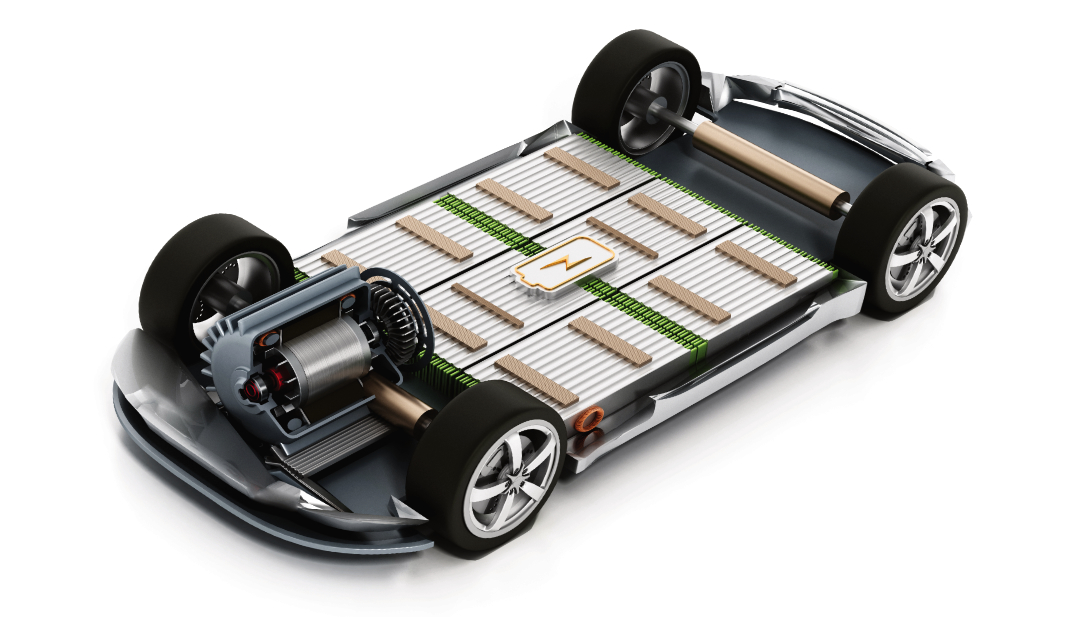Promising longer range and faster charging than Tesla
Last September, Toyota announced plans for their improved lithium-ion batteries, as well as a “breakthrough” in solid-state battery technology. It’s notable, because the company had been resisting its transition to electric vehicles (EVs), focusing instead on hybrids and vehicles powered by hydrogen fuel cells.
The bulk of Toyota’s new focus is on achieving improvements to lithium-ion batteries in the energy density, cost competitiveness and charging speeds.
Their new Performance lithium-ion batteries will achieve about a 491-mile range, and their future High-Performance lithium-ion batteries will reach about a 621-mile range. Both have about a 20-minute 10-to-80 percent fast charge capability.
A Potential Game-Changer
Solid-state batteries have long been regarded as a potential game-changer for EVs. Toyota stated that the company made a breakthrough in its efforts to improve the durability of this technology. Toyota has moved its focus to bringing solid-state batteries into mass production and ready for commercial use by 2027 or 2028.
Toyota’s first solid-state battery is expected to offer a 621-mile driving range with an 80 percent fast charging time of just around 10 minutes. Just for a comparison, the Tesla Model Y has a 336-mile range and about 15-minute fast charging time.
The long-awaited solid-state batteries have been touted by some industry experts as a potential solution to EV battery concerns such as charging time, driving range, and fire risk.
Solid-state batteries are nothing new. Solid electrolytes were created in the 1800s, and they are currently used in in small electronic devices like pacemakers and medical devices.
The Toyota-Idemitsu Team
Last October, Toyota announced signing a deal with Japanese petroleum company Idemitsu Kosan to mass produce solid-state batteries. The collaboration will focus on sulfide solid electrolytes, a promising material for EV batteries.
According to Toyota, the two companies have been working together on materials development since 2013. Idemitsu already has a small-scale facility for producing electrolytes, and the two companies are constructing a larger facility that will integrate the materials and assemble the batteries.
If successful, Toyota could really disrupt an industry currently dominated by Tesla and Chinese automakers.
Innovation And Patents
Toyota holds far more solid-state battery patents than other automakers. Over the past three years, Toyota registered over 8,000 solid-state battery patents. Many are assigned jointly with Idemitsu.
Hyundai, Kia and Honda are actively researching solid-state battery innovation. Other automakers are working with external battery manufacturers to take this step forward. To date, Tesla has not announced any solid-state battery plans.
Manufacturing Challenges
The obstacle to solid-state battery use in larger-scale applications surrounds their manufacturing, but the potential benefits of adopting solid-state batteries are significant. The challenges are complexity of assembling, difficulty in delivering long-term durability, and cost, because the active materials themselves are sensitive to oxygen and moisture. One of the key stumbling blocks for mass production has been the assembly process. Layers of anode-cathode cells need to be stacked quickly and carefully.
The Breakthrough
Delivering long-term durability is the big issue. Once assembled, a major challenge for solid-state batteries is around maintaining good contact between the electrodes and the electrolyte. In addition, repeated charge-discharge cycles can cause cracks to form between these components, significantly limiting the lifetime of the battery. Toyota says this is where the “breakthrough” has been made. They say they have developed a highly flexible, adhesive, and crack-resistant solid electrolyte.
Solid-State Advantages
Our phones, laptops and electric cars have a liquid lithium-ion electrolyte. Eliminating lithium could be a big advantage, considering lithium’s short supply, environmental issues, and increasing demand in coming years.
Solid-state batteries replace this liquid with sulfides or ceramic solids replacing the lithium. They are more structurally stable, and don’t contain any volatile liquids at risk of leaking. Removing the liquid electrolyte also makes batteries less susceptible to fire.
Solid electrolytes are less dense, so a solid-state battery can be smaller and lighter than its lithium-ion competitor. This could make electric cars smaller and lighter, or give them a greater range for the same size and weight.
These battery materials can withstand low and high temperatures, making them very useful in extreme conditions. Their high resistance to heat also means they can be safely charged more quickly than lithium-ion batteries.
Solid-state battery materials have higher energy densities too, which means that for the same weight, you can store more power.
Should Toyota follow through and deliver, it would move the company to the leading edge of electrification. With all that said, bold claims haven’t yet translated into real-world products yet. Until then, Toyota is on a growing list of companies that are betting on solid-state battery technology.
Ed and Kelly Burke are respectively Chairman of the Board and Senior Marketing Manager at fuel distributor Dennis K. Burke Inc. They can be reached at 617-884-7800 or ed.burke@burkeoil.com and kelly.burke@burkeoil.com.


